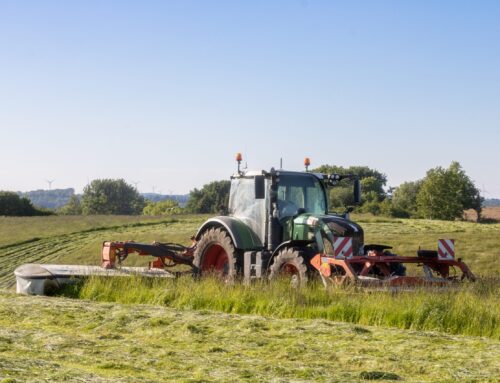Labour shortages continue to be a key issue for the Irish agri-food sector. It has proved a thorn in the side of many governments and ministers who have failed to address the problem. What exactly are the factors in Irish labour shortages?
Before we examine that here in Ireland, it’s worth mentioning labour shortages are not just an Irish phenomenon. Our British neighbours are suffering the same fate. In August of this year, the National Farmers’ Union cried out for flexibility to acquire new visa permits to allow more overseas workers to work in the UK. The NFU reported that £60 million of food has been wasted on farms because of labour shortages.
To deal with this, the Environment, Food and Rural Affairs Committee have launched an inquiry to explore what is causing labour shortages and the impact it is having on the food and farming sector. Some of the reasons according to the committee hinge
on the UK’s new immigration policy and the transition after Brexit.
The issue has also plagued many Irish politicians over the years. Former Agricultural Minister, Michael Creed, set up an industry group in 2017 to consider these issues and develop an action plan in relation to dairy labour shortages. Addressing the Dáil in May 2018, Minister Creed also outlined labour pressures that existed in the horticultural and meat processing sectors.
In 2022, labour shortages have reared its head once again. In November 2021, Minister of State at the Department of Enterprise, Trade and Employment, Damien English, announced the additional permit quotas; 1,000 for Horticulture Operatives, 500 for Meat Deboners, 1,500 for Meat Processing Operatives and 100 for Dairy Farm Operatives. This action was taken to address unprecedented labour challenges.
Yet, these are not unprecedented challenges as many reports have indicated a huge need to attract more workers into the agri-food industry. Farm Relief Services (FRS), published research on Monday that revealed that 66% of farmers are finding it hard to get workers and 75% said getting workers with farming skills is also difficult. The issue continues to bubble and it has been reported that Minister of State Martin Heydon is planning to make 500 work permits available for the dairy sector.
The key point to consider here is that numerous politicians have failed to address labour shortages issues and the forecast is not expected to improve based on the evidence of the last few years. Employers in the meat and dairy industry, horticulture and pig industry, will be invariably having the same problems it seems.
So what are the Irish factors?
FRS are one of Ireland’s recruitment specialists that provide farm relief services . Their CEO, Colin Donnery, explained to Agri Insider that the agri-industry as a whole is at a slight disadvantage competing with other sectors such as construction where much more attractive wages exist for employees. The Workplace Relations Commission details that in 2022, new entrant operative workers receive €14.93 per hour, while general operatives working in the industry for two years can expect up to €18.47 per hour. This far exceeds what a regular Irish farmer earns according to the EU Farm Economics Overview Report in 2021, a figure of €12.10/hour.
Other factors according to Colin Donnery include the decrease of immigrants and EU nationals coming from Eastern Europe (although Irish immigration levels have increased significantly since the Ukraine/Russia conflict) to live in Ireland, whereby horticulture and meat processing sectors heavily depend.
Another factor contributing to labour shortages is the seasonal nature of Irish agriculture, especially the seasonality and intense period of spring calving on dairy enterprises. Colin Donnery thinks that this seasonality is not reliable enough for many people as during other times of the year, it forces many to look elsewhere for consistent employment.
The government may announce that extra work permits for international workers will be granted for 2023, but this seems to be a problem that will likely surface over and over again.





